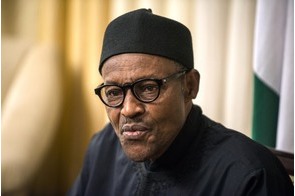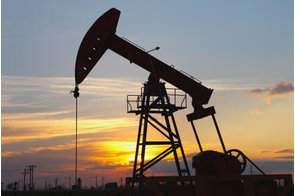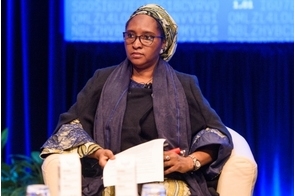Latest News
Nigeria's oil production to remain depressed through 2017 – EIA

News Highlight
- Emmanuel Ibe Kachikwu, who spoke to CNN on Monday, said Nigeria will have to increase oil production by 900,000 barrels per day to recover from output loss.
The United States Energy Information Administration (EIA), an agency of the U.S. Federal Statistical System, has said it expects Nigeria's oil output to remain low in 2016 and through 2017 as a result of militant attacks.
According to the Minister of State for Petroleum Resources, Emmanuel Ibe Kachikwu, who spoke to CNN on Monday, Nigeria will have to increase oil output by 900,000 barrels per day (b/d) to recover from production disruptions. The country’s output loss reached 750,000 b/d in May 2016 as militant groups in the Niger Delta, the oil-rich region, ramped up attacks on oil and natural gas infrastructure.
The attacks have led to the declaration of forces majeures on exports of Nigerian crude oil grades, including Bonny Light, Forcados, Brass River, and Qua Iboe, by oil majors such as Shell and Exxon Mobil.
Nigeria's oil production, which averaged 1.9 million b/d in 2015, fell to 1.4 million b/d, nearly a 30-year low, as of May 2016, according to Today in Energy, a publication of EIA.
Speaking to CNN this week, Kachikwu said: “We are producing some 1.5 million barrels per day and would need on average 900,000 barrels per day to catch up on what we have lost. If we can achieve peace, this will be feasible."
The federal government announced earlier this month that it has resumed the Niger Delta amnesty programme with the payment of outstanding tuitions of ex-militants who are studying abroad. Suspension of the amnesty programme by the administration of President Muhammadu Buhari led to the spike in militant attacks in the oil producing region.
However, Niger Delta Avengers (NDA), who have conducted more attacks than any other militant group, has made several demands including 60 percent ownership of oil blocks for people of the Niger Delta and 40 percent for non-oil producing regions; immediate clean-up of their communities with full compensation; the unconditional release of the leader of the Indigenous People Of Biafra (IPOB), Nnamdi Kalu; and the implementation of the report of the 2014 National Conference.
Despite the announcement of a ceasefire and resumption of amnesty programme by the Nigerian government, the EIA says crude oil production stoppages are likely to continue until the Nigerian government and the NDA can reach a comprehensive agreement, especially because payouts to the militants are just one of the NDA's many demands.
Related News
Latest Blogs
- CBN is fighting inflation instead of stagflation
- Why electricity privatization failed (2)
- How net metering can boost embedded power generation
- Adaora Umeoji and gender in Nigerian banking leadership
- Is protest an endangered human right of Nigerians?
Most Popular News
- IFC, partners back Indorama in Nigeria with $1.25 billion for fertiliser export
- Ali Pate to deliver keynote speech at NDFF 2024 Conference
- Univercells signs MoU with FG on biopharmaceutical development in Nigeria
- CBN increases capital requirements of banks, gives 24 months for compliance
- CBN settles backlog of foreign exchange obligations
- Nasdaq Dubai welcomes $600m sukuk listing by Islamic Development Bank






